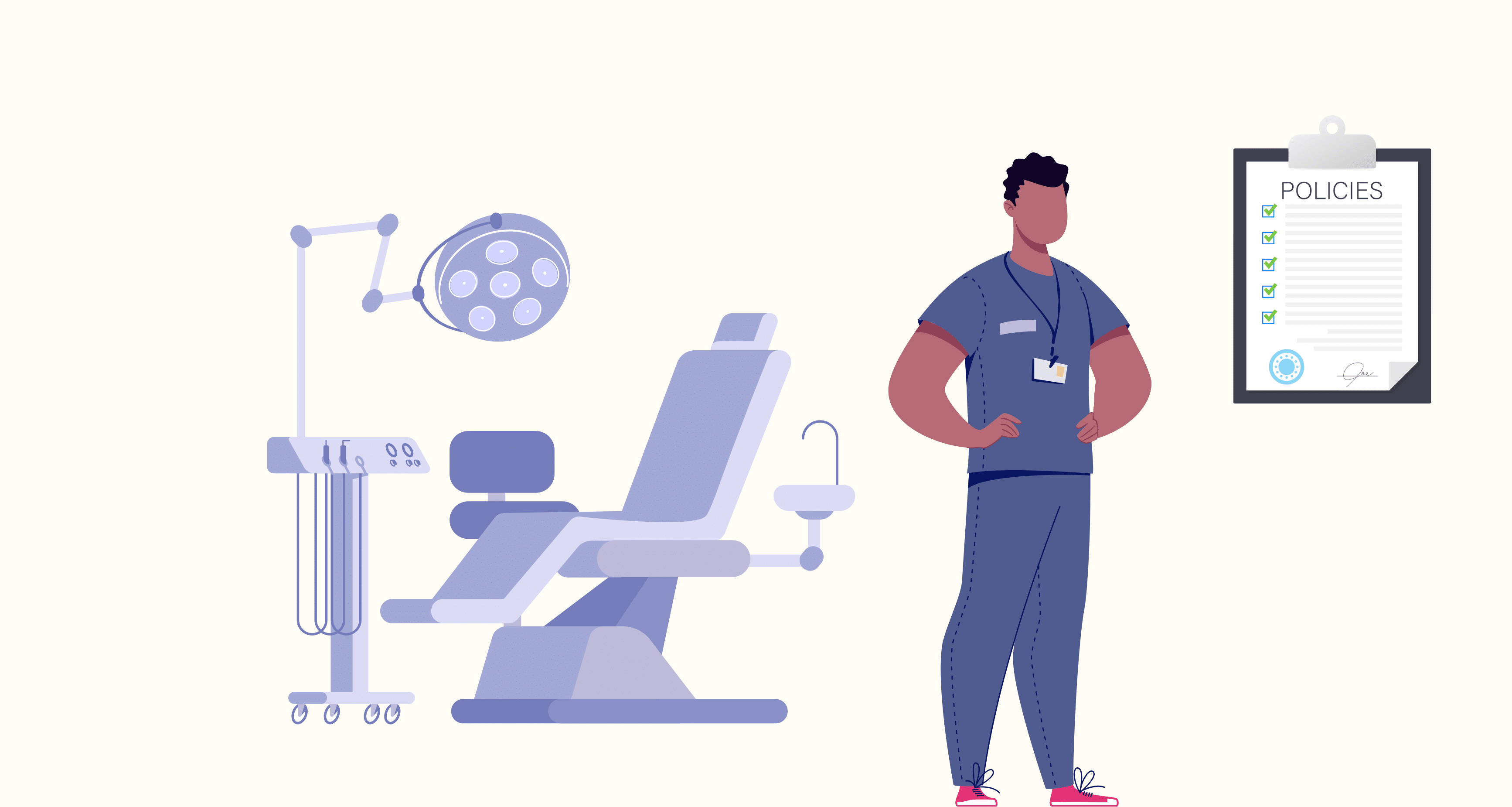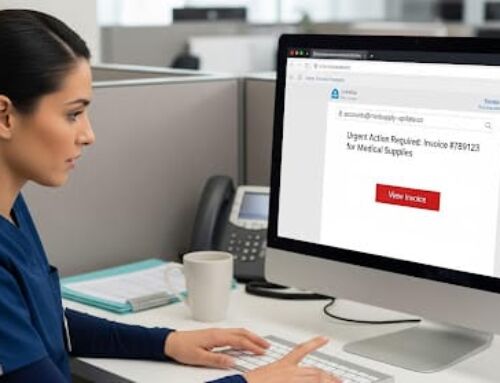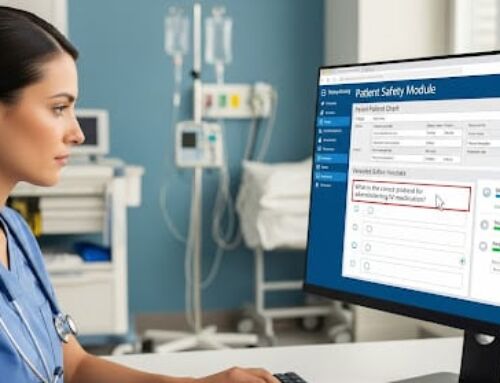
Data hacking in healthcare continues to increase each year, and with most healthcare organizations using electronic options to replace more dated manual alternatives, enhancing data security is more important now than ever. Did you know that 47% of cyber attacks are directed toward smaller businesses such as dental practices? This is one of the primary reasons dental practices have privacy and confidentiality policies: to protect patients’ private information and data.
While most practices have privacy policies, many have difficulty keeping them current. Ensuring policy compliance in unison with industry shifts and changes in the law can become overwhelming, considering that healthcare policy often changes, not including “as needed” scenarios. A dental office privacy policy is needed to ensure ethical and legal compliance. However, with the healthcare industry’s continuously shifting landscape, how can dental practices keep their policies up-to-date, fully accurate, and compliant with industry-wide policy changes?
Keep reading to find out how HIPAA privacy policy forms for dental offices can streamline your compliance and enhance the trust your patients have in your practice.
Advantages of Software vs. Manual Solutions for Your Dental Office Privacy Policy
A HIPAA privacy policy form for a dental office offers practices a significant advantage because it is designed to be a compliance assurance tool. Software-driven solutions provide multiple benefits for dental office privacy policies. This ranges from positively transforming how privacy protocols are managed, to streamlining how they are enforced in real-world environments. While you may assume that your privacy policy is simple enough to update manually, your practice could become more prone to preventable errors, and your policies may be less consistent with industry-wide policy updates.
As you consider using privacy policy templates in your operations, keep a few additional key advantages in mind.
Real-Time Updates
Unlike manual policies that are rarely updated, software solutions for privacy and compliance upkeep provide real-time updates to reflect changes in current regulations. This ensures that privacy policies remain current and compliant without you having to do manual research and content updates.
Accessibility
Software platforms offer easy accessibility to all staff, often through more intuitive interfaces. One primary advantage is also the ease of navigation through your privacy policy. With electronic software, you can often locate certain policy references automatically, compared to manual options, which may be more difficult. With this ease of usability, you indirectly promote adherence to your organization’s privacy protocols.
Versatile Integrations
Software solutions can be easily integrated across a variety of platforms, including desktops and tablets. This is essential because ease of policy access can streamline operations, simplify training, and reduce time-consuming tasks related to policy review if and when needed.
Automation
While you may feel the need to review your dental office privacy policy, automated solutions eliminate the need for this task. Centralizing privacy platforms within automated software can optimize the efficiency of your practice, allow reallocation of time and resources to your patients, and overall streamline privacy management workflows. Additionally, automated reminders for policy reviews and documentation processes help reduce administrative burdens, which is a significant advantage of using policy templates.
Considering the Risk Without an Innovative Solution
Templated policy solutions present dental practices with more efficiency both on the front and back ends of your practice. This means an increase in the confidentiality of your patient’s information, better prevention against in-office miscommunications, and more protection against preventable data breaches. The reasons that many practice managers opt for electronic options over manual processes are:
- Reduction in human error
- Decrease inefficiencies
- Elimination of outdated policies
- Better integration within the practice
Overall, with manual dental office privacy policy solutions, there is too much room for mistakes and too large of a gap for the potential of outdated information.
Elevating Your Practice With a Dental Office Privacy Policy
Manual privacy policy solutions are a legacy strategy compared to using software to keep your policies up-to-date. Manual options present more limitations in terms of accessibility, compliance tracking, and efficiency, making this method of policy review increasingly obsolete. Embracing solutions that are electronically driven offers a more streamlined approach to dental privacy policy management, consistent industry compliance, and, most importantly, enhanced patient trust.
To get a better idea of the benefits of using a HIPAA privacy policy form for your dental office, start working with Compliancy Group today.









